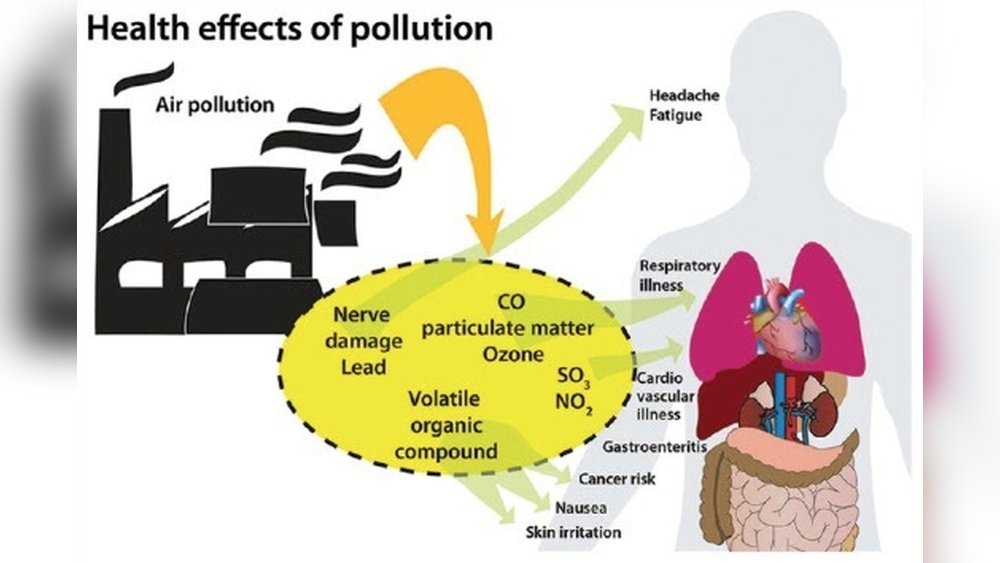Have you ever noticed your skin feeling dry, itchy, or breaking out without a clear reason? What if the air inside your home or office is the hidden culprit?
The quality of the air you breathe indoors doesn’t just impact your lungs—it directly affects your skin’s health too. From dryness and irritation to flare-ups of sensitive skin conditions, poor indoor air can cause your skin to suffer silently. Understanding how indoor air quality influences your skin can help you take simple, effective steps to protect your glow and keep your skin looking fresh and healthy every day.
Ready to uncover the surprising connection between the air around you and your skin’s well-being? Keep reading to learn how to breathe easy and keep your skin radiant.
Indoor Pollutants And Skin
Indoor air often contains pollutants that can harm your skin. These pollutants come from many sources inside your home or office. They can dry out your skin, cause irritation, or trigger allergic reactions. Understanding these indoor pollutants helps protect your skin health effectively.
Common Indoor Air Pollutants
Dust and pet dander are common indoor pollutants that settle on your skin. Volatile organic compounds (VOCs) come from paints, cleaning products, and furniture. These chemicals can irritate the skin and cause redness or itching. Mold spores grow in damp areas and can trigger skin allergies. Smoke from cigarettes or cooking also harms the skin by increasing dryness and inflammation.
How Pollutants Contact Skin
Pollutants in the air land on your skin throughout the day. Dust and tiny particles stick to the skin’s surface. VOCs can penetrate the skin’s outer layer, causing damage. Mold spores cause allergic reactions when they touch sensitive skin. Smoke particles settle on the skin and clog pores. Constant exposure weakens the skin’s natural barrier, making it more prone to problems.
Skin Reactions To Poor Air
Skin reacts quickly to the quality of the air inside your home or workplace. Poor indoor air carries dust, chemicals, and allergens. These particles can harm your skin’s natural barrier. The result is often visible and uncomfortable skin problems. Understanding these skin reactions helps in taking better care of your skin.
Dryness And Irritation
Dry air inside can strip moisture from your skin. This causes tightness and rough patches. Sensitive skin may feel itchy or look red. Airborne pollutants also irritate skin cells. Constant exposure makes skin dry and flaky. Dryness weakens your skin’s defense against germs.
Breakouts And Inflammation
Polluted air can clog pores with dirt and toxins. This leads to blackheads, whiteheads, and pimples. Inflammation appears as redness or swelling. The skin tries to fight off harmful substances. This response can worsen acne and cause discomfort. Keeping air clean reduces the risk of breakouts.
Flare-ups Of Skin Conditions
People with eczema, psoriasis, or rosacea often see flare-ups. Poor air quality triggers itching and redness in these conditions. Chemical irritants worsen skin sensitivity and damage. Allergens in the air provoke allergic reactions. Managing indoor air quality helps control these flare-ups.
Vulnerable Skin Types
Certain skin types react more strongly to poor indoor air quality. These vulnerable skin types often show signs of irritation and damage faster. Understanding how indoor air affects these skin types helps protect and care for them better.
Indoor air pollutants like dust, smoke, and chemicals can worsen skin problems. Sensitive and aging skin types need extra care to avoid flare-ups and dryness caused by poor air quality.
Sensitive And Allergic Skin
Sensitive skin reacts quickly to changes in air quality. Pollutants trigger redness, itching, and inflammation. Allergens in the air can cause flare-ups of eczema and rashes. This skin type has a weakened barrier, making it easier for irritants to penetrate.
Even small amounts of indoor pollution can lead to discomfort. Moisturizing and using gentle skincare help strengthen the skin barrier. Keeping indoor air clean reduces the risk of allergic reactions and irritation.
Aging And Compromised Skin
Aging skin loses moisture and elasticity. Poor indoor air speeds up dryness and wrinkles. Toxins in the air break down collagen and damage skin cells. This leads to dullness and uneven texture.
Compromised skin from medical conditions or treatments is also at risk. It cannot repair itself easily after exposure to pollutants. Using antioxidant-rich products and humidifiers can support skin health indoors.

Credit: www.pioneerminisplit.com
Protecting Skin Indoors
Protecting your skin indoors is crucial for maintaining a healthy glow. Indoor air often contains pollutants and dry air that harm skin. These factors can cause dryness, irritation, and accelerate skin aging. Simple steps can reduce these effects and keep your skin healthy. Focus on improving air quality and adapting skincare habits to shield your skin effectively.
Improving Air Quality
Start by increasing ventilation in your home. Open windows when weather allows fresh air inside. Use air purifiers with HEPA filters to reduce dust and allergens. Keep humidity levels between 30% and 50% to prevent dry skin. Avoid smoking indoors as it releases harmful particles. Regularly clean carpets and curtains to remove trapped pollutants. These changes help create a cleaner environment for your skin.
Skincare Habits To Shield Skin
Choose gentle cleansers to avoid stripping natural oils from your skin. Apply moisturizers immediately after washing to lock in hydration. Use products with antioxidants to fight damage from indoor pollutants. Drink plenty of water to keep your skin hydrated from within. Avoid touching your face often to reduce irritation. Consider using a humidifier during dry seasons to maintain skin moisture. These habits protect your skin from indoor air damage.
Recognizing Air Quality Effects
Indoor air quality has a direct impact on your skin’s health. Pollutants, dust, and allergens inside your home can cause visible changes to your skin. Recognizing these effects early helps you take steps to protect your skin. Your skin often shows signs before you notice any discomfort.
Understanding how poor air quality affects your skin can prevent long-term damage. It is important to identify symptoms and know when to get professional help. Acting quickly can reduce irritation and maintain healthy skin.
Signs On Your Skin
Your skin may become dry and flaky due to indoor pollutants. Redness and itchiness often appear after exposure to poor air quality. Small rashes or bumps can develop, especially in sensitive areas. You might notice increased breakouts or acne flare-ups. Skin may feel tight or uncomfortable, losing its natural glow. Allergic reactions like hives or swelling can also occur. These signs indicate that your skin is struggling with the environment around you.
When To Seek Help
Consult a dermatologist if skin problems persist or worsen over time. Sudden swelling, severe redness, or pain needs immediate attention. If over-the-counter creams do not improve your condition, professional advice is necessary. Persistent itching or rashes that spread require medical evaluation. People with asthma or allergies should be extra cautious. Early treatment helps prevent permanent skin damage and controls symptoms effectively.

Credit: www.nirmiteerobotics.com

Credit: iitindoorair.wordpress.com
Frequently Asked Questions
Can Poor Air Quality Cause Skin Problems?
Poor air quality can cause skin dryness, irritation, breakouts, and worsen existing skin conditions. Pollutants damage skin barrier and trigger inflammation.
What Are The Side Effects Of Poor Indoor Air Quality?
Poor indoor air quality causes eye, nose, and throat irritation, headaches, dizziness, fatigue, respiratory issues, skin problems, and worsens asthma or heart conditions.
How Do You Know If Air Quality Is Affecting You?
You may notice coughing, wheezing, chest tightness, or shortness of breath. Eye, nose, or throat irritation, headaches, fatigue, and skin issues also signal poor air quality effects. Pre-existing conditions like asthma may worsen.
Can Bad Air Quality Give You Acne?
Poor air quality can irritate skin, clog pores, and trigger acne breakouts. Pollutants increase inflammation and worsen skin health.
Can Poor Indoor Air Quality Cause Skin Irritation?
Poor indoor air can dry out skin and cause redness, itching, and rashes.
How Does Indoor Pollution Affect Skin Aging?
Pollutants speed up skin aging by damaging skin cells and causing wrinkles.
Conclusion
Clean indoor air helps keep your skin healthy and glowing. Polluted air can cause dryness, redness, and irritation. Protect your skin by improving air quality at home. Use air purifiers and ventilate rooms regularly. Drinking water and moisturizing also support your skin’s defense.
Small changes in your environment make a big difference. Healthy air means healthier skin every day. Take steps now to breathe easier and look better.
 Skip to content
Skip to content 